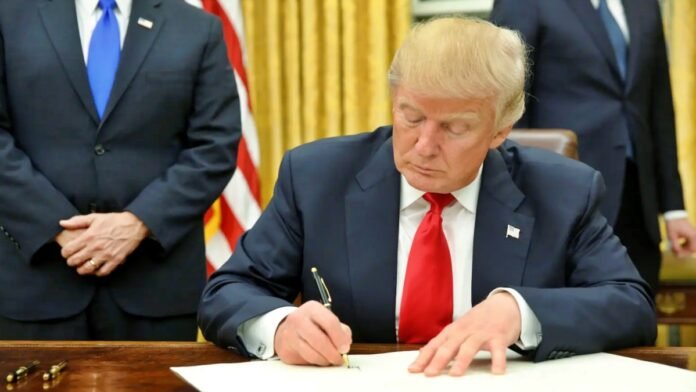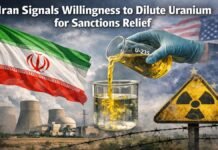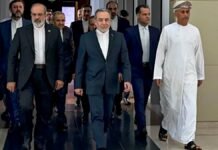
Key Points
- US lifts several economic sanctions on Syria through executive order signed by President Donald Trump
- Move aims to stabilize Syria, reconnect it to the global economy, and encourage international investment
- Sanctions on former President Bashar al-Assad, his inner circle, and those linked to human rights abuses remain
- Major restrictions under the Caesar Act and on Syrian military/intelligence still in force
- Temporary exemptions granted; permanent removal requires legislative action
- Decision follows talks between Trump and Syria’s interim leader Ahmed al-Shara
- EU has also lifted most remaining sanctions on Syria, but US terrorism designations under review
Washington D.C.: In a significant diplomatic shift, the United States has announced the lifting of several economic sanctions on Syria. President Donald Trump signed the executive order on Monday, marking a major policy move following consultations with Syria’s new interim leader, Ahmed al-Shara.
Aims: Stability, Peace, and Economic Revival
White House press secretary Caroline Levitt stated that the primary goal of this executive order is to put Syria on a path toward stability and peace. The order is designed to:
- Reconnect Syria with the international financial system
- Create new opportunities for global commerce
- Encourage investment from both regional neighbors and US businesses
Levitt emphasized that these steps are intended to support Syria’s economic recovery and foster an environment conducive to peace and reconstruction.
Key Sanctions Remain in Place
Despite the easing of some restrictions, the executive order does not lift sanctions on:
- Former President Bashar al-Assad
- Assad’s top aides and family members
- Officials connected to human rights violations, drug trafficking, or Syria’s chemical weapons program
Additionally, the Caesar Act, which imposes severe penalties on those doing business with the Syrian military, intelligence agencies, or other blacklisted entities, remains in force. The current changes provide only a temporary exemption from certain sanctions; a permanent repeal would require Congressional approval.
Recent Diplomatic Developments
The decision follows a high-profile meeting in May between President Trump and Syria’s interim leader Ahmed al-Shara in Saudi Arabia. During the talks, al-Shara pledged policy reforms and steps toward normalizing relations with the international community. The White House has since published the executive order on its official X (formerly Twitter) account.
International Context: EU Also Relaxes Sanctions
The US move comes as the European Union has lifted almost all remaining sanctions on Syria, signaling a broader shift in international engagement with the war-torn country. However, the US continues to review Syria’s designation as a state sponsor of terrorism and the classification of al-Shara’s group as a foreign terrorist organization.
What This Means for Syria
By easing economic restrictions, the US hopes to:
- Facilitate humanitarian aid and reconstruction
- Encourage foreign investment and economic growth
- Support Syria’s reintegration into the global economy
However, the continued enforcement of key sanctions and terrorism designations means that full normalization and unrestricted commerce remain out of reach for now.
Looking Ahead
The temporary nature of these exemptions means that further progress will depend on both Syrian reforms and US legislative action. The international community will be watching closely to see if these steps translate into real improvements in Syria’s stability, governance, and human rights record.




















































